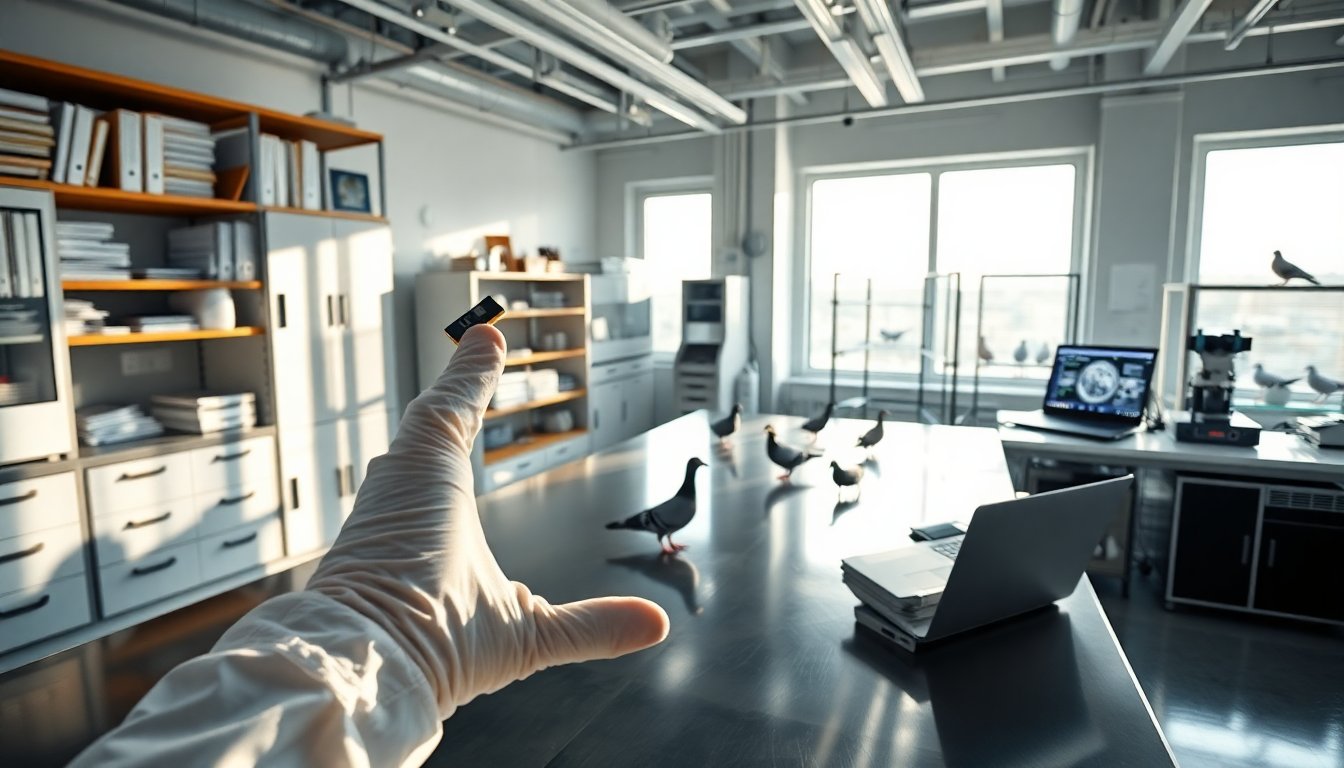Table of Contents
In a significant development at the intersection of biology and technology, the Russian neurotechnology company Neiry has initiated a project aimed at controlling flocks of pigeons through implanted brain chips. This innovation seeks to enhance surveillance and monitoring capabilities, with the company asserting that it enables precise directional control of the birds from a laboratory environment.
The concept is both straightforward and impactful: by implanting chips that stimulate specific brain regions in pigeons, researchers can influence the birds’ flight patterns without extensive training. Neiry claims that, following the surgical procedure, the pigeons naturally wish to fly in the directions set by their operators. This novel approach could transform our interactions with both nature and technology.
The mechanics behind the technology
The process starts with a sophisticated surgical technique, wherein electrodes are implanted into targeted areas of a pigeon’s brain using a precision-guided system. Neiry aims for a 100% survival rate for the pigeons undergoing this procedure, although detailed survival statistics have not been disclosed. Each bird is equipped with a solar-powered electronic backpack, which contains essential components for remote control, including GPS for tracking its location.
How the system works
The implanted device allows researchers to upload specific flight paths for the pigeons, utilizing targeted electrical impulses to influence their sense of direction. With GPS technology and onboard electronics, the pigeons can undertake missions over extensive distances, making them versatile tools for various applications, including infrastructure monitoring.
Potential applications for biodrones
Neiry envisions numerous practical applications for these brain-controlled pigeons, which they refer to as biodrones. Their technology could play crucial roles in monitoring power transmission lines, overseeing gas distribution networks, and conducting environmental assessments. This innovative method not only enhances traditional surveillance techniques but also provides a more sustainable alternative by utilizing birds instead of conventional drones.
Ethical considerations and future developments
While the idea of controlling animals through implanted technology raises ethical concerns, Neiry emphasizes that their system adheres to legal standards related to privacy and data protection. The birds are outfitted with cameras that operate under strict regulations to ensure personal data is not captured, with faces being blurred through artificial intelligence. This commitment to ethical practices indicates the company’s recognition of the broader implications of their technology.
As Neiry advances its system, it is also exploring the possibility of adapting this technology for other bird species. Founder Alexander Panov has noted that, while current tests focus on pigeons, species such as ravens and albatrosses could be utilized for particular monitoring tasks, especially in coastal areas and expansive marine regions.
Research involving the control of birds via neurointerfaces is not exclusive to Neiry; similar studies have been conducted in countries including China, South Korea, the United States, and India. However, Neiry asserts that it has progressed beyond experimental phases and is actively pursuing commercial deployment, with plans for international expansion.
The introduction of brain-chipped pigeons as a form of biodrone exemplifies a fascinating convergence of technology and biology, opening new possibilities for surveillance and monitoring. As this technology develops, it will be essential to observe how ethical considerations are managed and how it may influence our relationship with the natural world.


